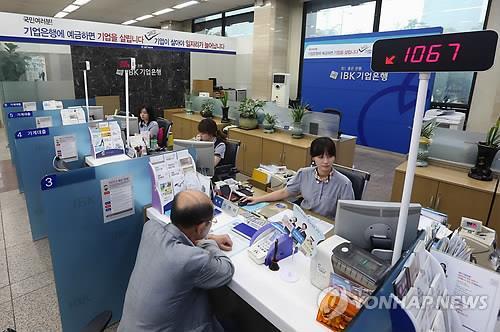South Korea's major commercial banks are going all out to keep customers from leaving, market observers said Tuesday, apparently as many have already left for non-bank financial institutions in search of higher interest returns on their deposits.
Commercial banks generally continue to enjoy the largest share of savings customers as they are often considered the safest and the last to collapse among all financial institutions that offer interest on deposits, including savings banks, insurance firms and asset management companies.

Seemingly an increasing number of people are beginning to abandon such a notion, the market observers noted.
As of the end of April, deposits held at non-bank financial institutions came to 2,022.15 trillion won ($1,724 billion), breaching the 2,000 trillion won mark for the first time in the country's history, according to the Bank of Korea.
The April reading also marked one of the steepest rises in history, spiking 5.8 percent or 111.05 trillion won in just four months.
The never-seen-before phenomenon comes as the BOK kept its policy interest rate at a record low of 1.5 percent for 11 consecutive months since July 2015.
The central bank again lowered the key rate to a new record low of 1.25 percent earlier this month, forcing most local lenders to lower their own lending rates, along with their rates on deposits.
Apparently concerned about losing more customers, local banks are resorting to what appear to be last-minute efforts.
Standard Chartered Korea, one of six major commercial banks here, is offering gold bars in a raffle for new savings customers, while Woori Bank is launching new membership points that can be used just like cash.
Some are even prepared to withstand the storm.
Shinhan Bank is considering maintaining its interest rates on deposits intact, a move that will surely damage its earnings if not cause a significant loss.
"Lowering the interest rate on recently launched savings products may lead to a drop in customer loyalty. Many believe winning the customers' trust is more important than enduring short-term losses," a bank official said. (Yonhap)








